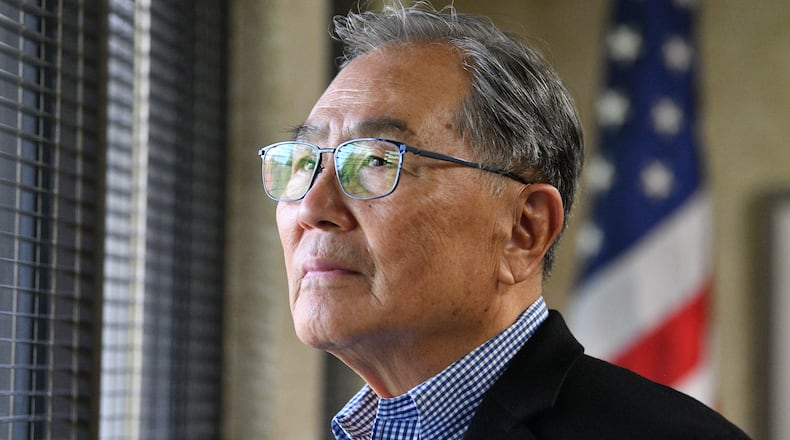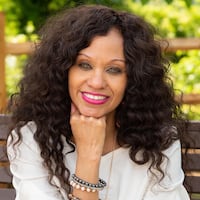Sunny K. Park was only 32-years-old when he first landed on U.S. soil in 1974. He kissed the Indiana ground.
The South Korea native had $200 in his pocket and found a job that same day working in a restaurant kitchen.
Four years later, Park was a life insurance salesman, moving into an Atlanta apartment on Buford Highway with his wife, who was eight months pregnant, and four-year-old daughter.
Today, Park is a prominent business leader in Georgia having been an advisor for state officials, universities and other organizations for decades. His current roles include serving on the advisory board for Korea-based SK Innovation’s multi-billion dollar electric battery plant development in Commerce, Georgia.
Now 80 and living in Sandy Springs, Park says the journey to fulfilling his American Dream hasn’t been typical but, through ups and downs, he’s been committed to helping others. It’s a way of “paying it forward” for life in the U.S., and inspiration he received during childhood when U.S. troops came to his hometown of Seoul during the Korean War.
“So many Americans died in Korea to save us,” Park said. “I saw the American people die in front of my eyes when I was a young boy.”
Korea is the 10th largest export market for Georgia. Park, co-founder of the American Korean Friendship Society, has assisted Georgia governors with that connection, including Gov. Brian Kemp and former Gov. Sonny Perdue.
“I was part of the team that helped to bring the Kia plant to Georgia,” Park said of the plant in West Point. He is a former vice chairman of the Georgia Ports Authority.
Last July, just days after his 80th birthday, Park sold his national janitorial business – General Building Maintenance – to New York-based Pritchard Industries for millions of dollars. He declined to disclose the exact amount.
Park started his business in 1983 solely to employ 12 people who were unable to find work, he said.
“I had been calling everywhere, so I pray (asking) ‘What should I do,” Park said. “I’m thinking, ‘What if I start a janitorial service company and help them?’ I never thought about the company getting bigger and changing (the course of) my career.”
During the growth of his business, Park bought the 100,000 square-foot office park on Presidential Parkway where he landed his first janitorial contract in 1983. He expanded operations to 23 cities and more than 3,000 employees and contractors.
“I don’t know anybody who knows how to create jobs more than Sunny Park does,” Sandy Springs Mayor Rusty Paul said. “Particularly (I’ve turned to him) about entrepreneurship and how ... we go about increasing the number of people who want to start their own businesses and grow.”
Park serves on the Sandy Springs Development Authority.
“When I moved to the U.S. I said, ‘I will never forget about Korea but I want to be American,’” Park recalled.
Audio: Sunny K. Park recalls communism and the start of the Korean War when he was a child
Life in America
Park began to dream of life in America at the start of the Korean War when he was nine or 10-years-old. Park and his family were refugees, he said, and they would walk further south, three to four days and nights at a time, hungry and cold to stay safe.
He saw U.S. servicemen in battle and after the war, troops brought food and supplies, he said.
“I saw the American people so brave. They fight real strong. And I thought, ‘Man, they just don’t know fear,’” Park said.
Park was determined to become a financially successful U.S. citizen after arriving in the 1970s. He worked his way to a job at New York Life in Indiana and started a family. But Park suffered a painful loss shortly after moving to Atlanta in 1978. His wife died within weeks of the birth of his baby son, and Park was faced with raising his newborn and four-year-old daughter without her.
Nearing his 40th birthday in 1983, the then-life insurance agent considered himself “still poor” and believed he was not helping others as much as he could have.
But at that point, Park was actually a go-to person in his then-Buford Highway community, helping other Korean immigrants who spoke little English and were in need. People asked him to speak to merchants if they unknowingly made a bogus purchase; or if they needed a translator at the Department of Motor Vehicles, he said.
The same year, 1983, Park started General Building Maintenance.
He had forgotten that years earlier while living in Indiana he had outlined a plan for success for himself.
On a white sheet of paper, Park had sketched an office building and a vision of feeding 1,000 families. He estimated that he would need $2.5 million to do so, requiring he sell one life insurance policy per day.
“That was unrealistic but I wrote that down,” Park recalled. “I found (that paper) when I started writing my book (an unpublished memoir). I said, ‘Wow how does God work in a person’s life.’ You’ve got to have a clear goal and then God will help you. That’s how I look at it.”
Credit: Adrianne Murchison
Credit: Adrianne Murchison
Park gives motivational talks to MBA students at Georgia State University as well as troubled teenagers ordered by courts to attend the Georgia Youth Challenge Program at Fort Stewart.
“I want to help them to not go to jail and I want to help the country by making them productive citizens.” Park said of the teenagers.
The teens are initially resistant to Park’s two-hour message of success and determination, he said, but he’s persistent in telling them that he sees their potential.
“By the time I end, some of them cry. Some don’t want me to leave,” Park said. “(I tell them), ‘I came here speaking no English, and I’m standing up here as a millionaire. Tell me why you can’t do it? If I can do it, you can do it.’”
Credit: HYOSUB SHIN / AJC
Credit: HYOSUB SHIN / AJC
About the Author
Keep Reading
The Latest
Featured





